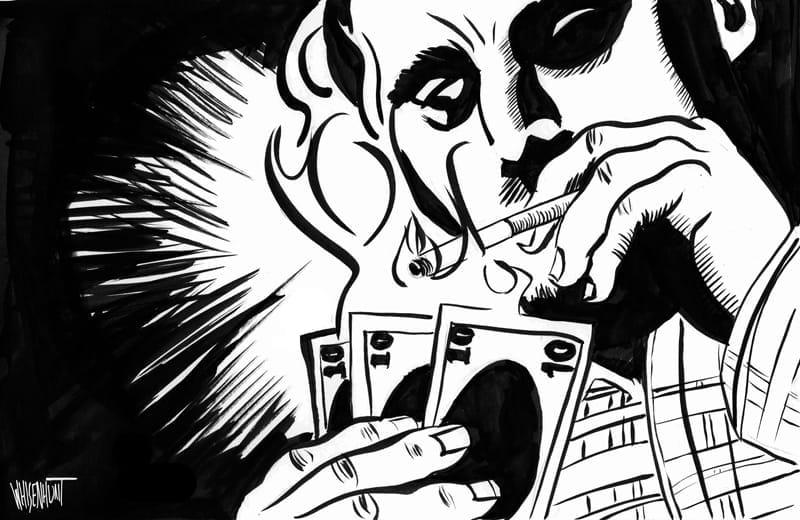Blowing VA anti-smoker legislation back at delegates
Legislation meant to curb smoking indicative of a trend

Illustration by Philip Whisenhunt
Shane Wade
Opinion Editor

Earlier this week, tobacco smokers in Virginia were attacked by two pieces of legislation. The first (HB120) would increase the tax on cigarettes by 383 percent, and the other (HB 114) would raise the fine for littering a cigarette butt to $100 with mandatory community service hours.
While state Republicans soundly defeated both measures, it would behoove us to take a closer look at the implications of these bills.
On the surface, the legislation was obviously an attempt to raise state revenue to help fund state programs, including Medicaid and tobacco cessation programs. Concerns about the environment, particularly the affect of cigarette litter flowing into the Chesapeake Bay, undoubtedly played a part in its introduction.
Prior to the bill’s defeat, the delegate that proposed HB 114, Patrick Hope, expressed an acknowledgement that the bill probably wouldn’t pass.
It’s a waste of time and taxpayer money for Democrats to purposefully propose legislation they fully expect to fail. How undutiful and sophomorically lazy is it to make no realistic efforts to pass legislation you proposed?
Virginians would have been better off if the two parties had worked together to serve the public’s fiscal and environmental issues. This could be done by drafting legislation that better aids the enforcement of current laws already in place to punish litterers or legislation that imposes a more reasonable tax on customers purchasing cigarettes and the tobacco companies producing them.
Therein lies the real issue that concerns me. As a non-smoker, I’m opposed to the legislation on principle. It’s a form of regressive taxation, plain and simple. The legislation taxes the consumers at such a high rate that it effectively either forces them to stop smoking or punishes them for smoking with an aggressively high tax.
To impose such a blanket tax on the consumer ignores the realities of the situation, particularly the fact that smokers are disproportionately poor and the fact that nicotine is a severe and complex addiction.
Although the proponents of the legislation likely would fund tobacco cessation programs with the increased revenue, I highly doubt the small, initial revenue boost would balance out the numbers of participants in these programs.
Why not instead levy the tax against the tobacco companies who produce cigarettes? While we’re at it, why not pass legislation that mandates they make their cigarettes biodegradable and less harmful to the environment? Perhaps the tobacco companies would even need to hire more employees to help meet this mandate.
Make no mistake, I’m all for helping people quit smoking, but legislation like this ignores the realities of the issue, while displaying the blatant lackadaisical attitude and disdain that some politicians actually hold towards their constituents.


